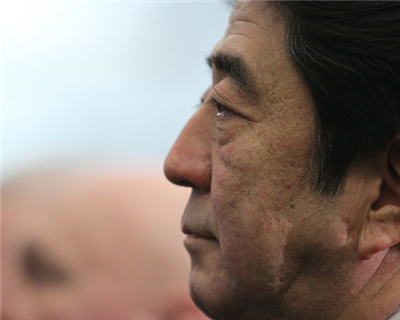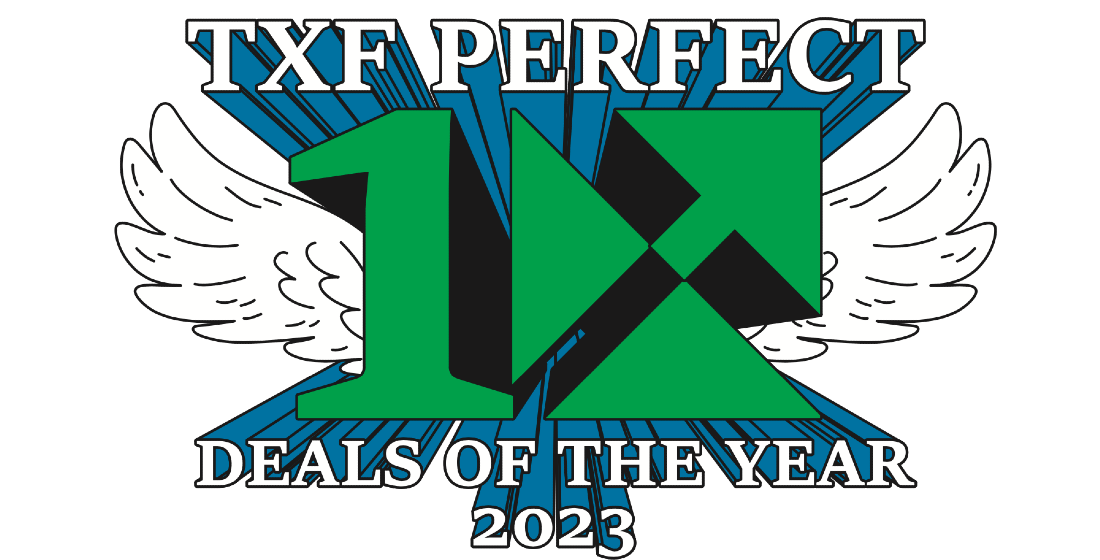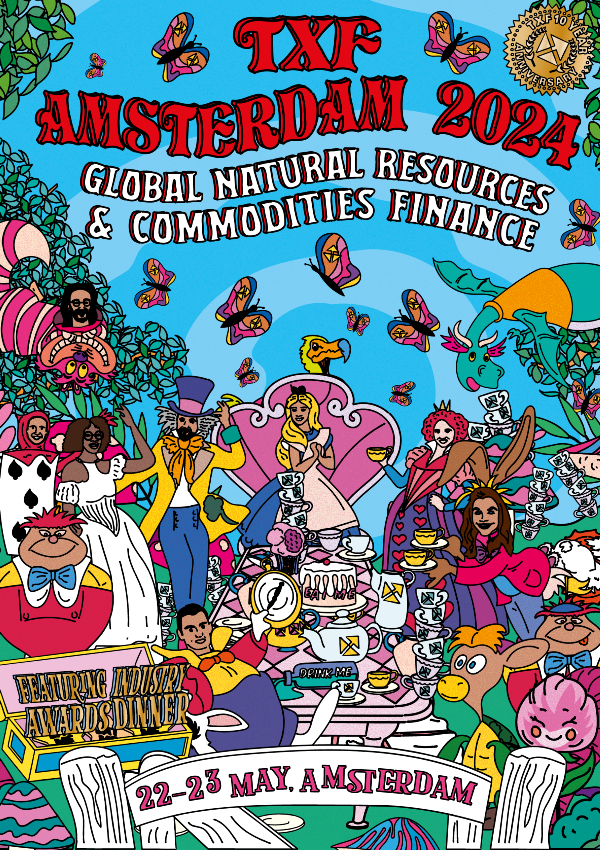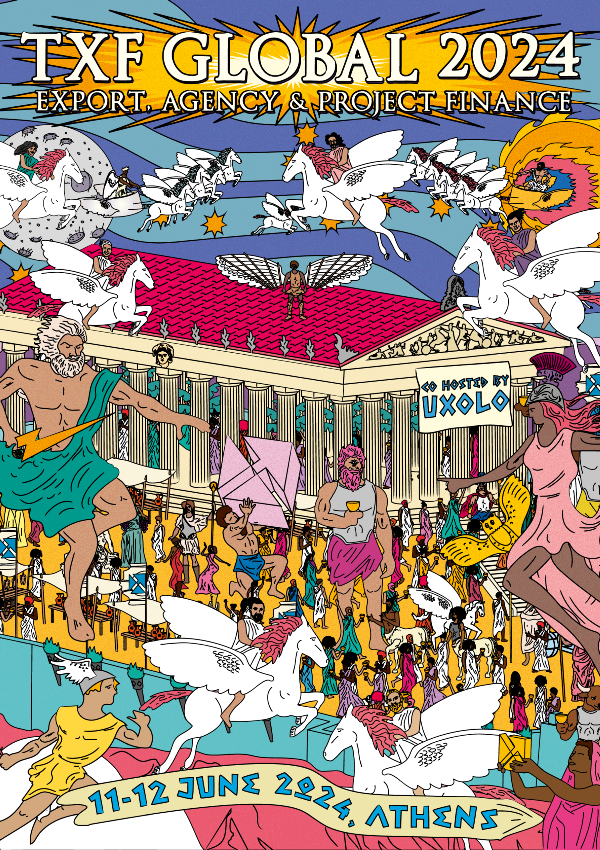JBIC: the outward face of Japan Inc?
JBIC has been quick out of the starting blocks in 2016, supporting $5.6 billion in deals as the government swings its weight behind the policy bank. Connor Lovell looks at JBIC’s new powers and the battle for infrastructure contracts in Asia.

JBIC has been quick out of the starting blocks in 2016, supporting $5.6 billion in deals as the government swings its weight behind the policy bank. Connor Lovell looks at JBIC’s new powers and the battle for infrastructure contracts in Asia.
Picking industrial winners, a practice long considered unfashionable in Western policy circles, has re-emerged as a mainstay of Prime Minister Shinzo Abe’s assault on Japan’s continuing deflationary trap. And with Abe promising to be a ‘top salesman’ for Japanese infrastructure exports, it appears that the Japan Bank for International Cooperation (JBIC) – the country’s premier policy bank – is the chosen agent for a new mercantilism in an era of cutthroat competition.
“In this age of global competition, the government shouldn’t hesitate to provide policy support to individual companies.” – Shinzo Abe.
JBIC has had an explosive start to 2016. According to tagmydeals, the bank supported $5.6 billion in deals in the first three months of the year as the government’s ‘Revitalisation Strategy’ gains traction. The plan, set out in 2013 and updated late last year, is partly based on capturing a greater share of the world’s growing infrastructure market. The target is to triple sales from 10 to 30 trillion yen by 2020. But as the economy continues to flatline, the strategy is more urgent than ever.
JBIC’s annual survey on overseas operations by Japanese manufacturers shows that business confidence is foundering: “This year’s results, when compared to those of past surveys, indicate signs of a standstill.” In March, exports fell for the fifth month in a row, a 4% decrease since February last year. The worry is that Japan could experience its fourth recession in five years and a re-run of the ‘lost decade’ it experienced in the 1990s. And, to compound the problem, the yen is at its highest level since 2014, at around ¥108.4 against the dollar, making Japanese exports less competitive.
And yet these sales are vital if the Japanese economy is to have any chance of growing. “The export of infrastructure systems leads not only to the order itself, but also to the creation of a new foothold for Japanese companies, an enhanced supply chain and eventually to winning local market share,” says Hideo Naito, global head of infrastructure and environment finance at JBIC. “On the other hand, it occurs in fields exposed to the fiercest international competition.”
Touting for business
The slowdown has resulted in a muscular policy response from the Japanese government. “Over the past few years the government has clearly widened the scope of what JBIC can get into. For example, they can now lend to developed countries,” a prominent export financier tells TXF.
Increased powers for JBIC announced by the Ministry of Economy, Trade and Industry (METI) in November last year include a Specially Designated Operations account which will enable JBIC to take further risks by jettisoning the requirement to ensure certainty of repayment for each individual project. Instead, the account will simply have to be in the black overall. There has also been an expansion of JBIC’s local currency loans and new assistance tools for overseas infrastructure projects such as two-step loans to banks, acquisition of bonds, project bonds and provision for Islamic financing.
Furthermore, as the domestic market stagnates, JBIC appears to be supporting mergers and acquisitions (M&As) by Japanese companies abroad. “There has been a spate of M&A transactions this year, which is a relatively new line of business for JBIC,” Paul Richards, global head of structured export finance at ANZ, tells TXF.
In the year ending March 2016, JBIC backed 25 M&A deals – a 35% increase on 2014. Reportedly, JBIC even provided dollar liquidity, but no risk, in Nikkei’s headline $1.2 billion acquisition of the Financial Times in December last year.
Tadashi Maeda, JBIC’s senior managing director, has been at the centre of implementing these policies. He believes there has been a radical change in the political environment behind JBIC’s mission in recent years, but added: “For Japanese infrastructure companies, overseas markets are still a relatively unexplored territory. The government and other public bodies need to get involved in individual projects to promote further cooperation between the public and private sectors.”
A tale of two hemispheres
JBIC’s experience contrasts sharply with the response of other ECAs in developed economies outside of Asia. For the last 30 years, most Western countries have been content to believe that the economic sphere has laws, and an internal logic of its own – quite separate from objectives set by the state. But not so in the East. According to one figure in a major OECD member export credit agency: “The Asians are the leading proponents and practitioners of a new ECA paradigm that practices national interest.”
“They have always done more untied than tied lending,” says Richards. “Historically this portion has been somewhere between 85 and 90% of total business volume.”
This could be to buttress to the country’s energy security, such as the recent $900m investment in Russia’s Sakhalin oil and gas field in Russia, exports of thermal coal technology to Indonesian utilities or a $100 million credit line to the Latin American Development Bank for support of green technology exports.
Direct export insurance is mainly left to Nippon Export and Investment Insurance (NEXI), the country’s traditional export credit agency. The Asian model tends to have a standard insurer and trade facilitator like NEXI which is compliant with the OECD Arrangement, and a separate Ex-Im bank like JBIC with a full menu of financing facilities at its disposal. This is especially effective in Japan where the two agencies work more closely than anywhere else.
“Unlike JBIC and NEXI, who often work together, Korea Ex-Im and K-sure have no structured cooperation. They may be in the same transaction but that is by accident rather than design,” says a source with knowledge of the market. As well as granting more tools to JBIC, METI has doubled NEXI’s maximum investment insurance period from 15 to 30 years, allowing it to support larger and riskier projects.
According to the US Ex-Im’s annual competitiveness report, Japan and Korea account for three quarters of all OECD activity unregulated by the Arrangement. However, neither JBIC or NEXI provide any statistics on aggregate amounts. This makes it very hard for the rest of the world to study what the consequence of this is.
“There is no comparable blend in Europe or the Americas,” according to one source. “The result is an Asian level playing field, and a rest-of-the-world level playing field,” the source adds.
China as the red elephant in the room
“Gradually one has come to see that there are times when the battle is not necessarily between company and company, but also between country and country.” – Margaret Thatcher
No doubt, the Japanese approach is heavily influenced by the political economy of Asia and the state-led developmental strategy that many countries followed when they industrialised. But the resurgence in economic diplomacy probably has much to do with current political insecurities in the region and the rise of China.
“Without question, having China as a neighbour is a big factor behind aggressive support for outbound investment and increased M&A activity. There is definitely a national interest agenda intent on showing that Japan is still a political and economic powerhouse,” says a source intimate with the Asian market.
A bit of hands-on economic stewardship may be the only option in a region dominated by China’s expansive purse strings. The battleground is Asia and the prizes are lucrative infrastructure deals based on high-technology exports.
In October, Japan lost a $5.5 billion contract to build a high speed rail line between Jakarta and Bandung to Chinese firms, upending five years of feasibility studies and a proposal they considered technically superior. The decision was a profound shock to the Japanese establishment, which had failed to anticipate the strength of China’s bargaining position, offering a no-strings loan without requiring a guarantee from the Indonesian government despite no previous experience in high-speed rail.
Then in December, Japan’s Ministry of Finance upped the ante by agreeing to inject a further $272 million into JBIC’s Asia-focused infrastructure account, on top of $1.2 billion from JBIC’s own resources. The move can be seen as an answer to the Chinese-led Asian Infrastructure and Investment Bank (AIIB), which Japan has declined to join. And in a parallel decision by ME
TI, NEXI is now allowed to insure local government infrastructure projects throughout Asia, as well as just those where the central government is the sponsor. The next battle-ground is likely to be another high speed, high stakes rail project, this time connecting Malaysia and Singapore. Maeda has said publically that JBIC will redouble its efforts to help Japanese firms win the contract, worth anything between $9.7 billion and $14.5 billion. Though, as experience shows, political loyalties can trump even the best structured deals.
But as the economies of the developed world appear to be turning Japanese, perhaps Japan Inc will prove a model for others to follow.
Tadashi Maeda, senior managing director at JBIC, will be speaking at TXF Rome 2016 on 8-10 June. View the full speaker line up here.





